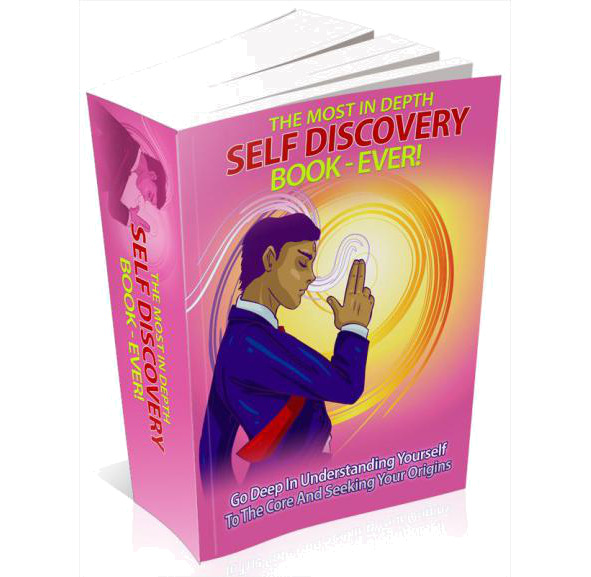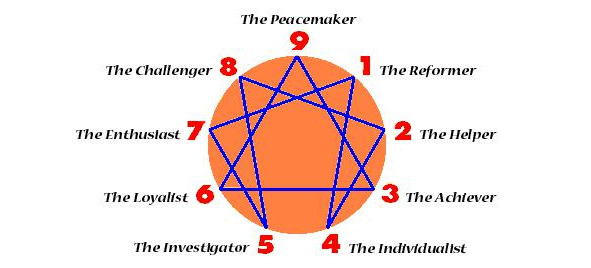
Бесплатный фрагмент - The Most In Depth Self Discovery Book — Ever

— 1 —
Terms and Conditions
LEGAL NOTICE
The Publisher has strived to be as accurate and complete as possible in the creation of this report, notwithstanding the fact that he does not warrant or represent at any time that the contents within are accurate due to the rapidly changing nature of the Internet.
While all attempts have been made to verify information provided in this publication, the Publisher assumes no responsibility for errors, omissions, or contrary interpretation of the subject Matter herein. Any perceived slights of specific persons, peoples, or organizations are unintentional.
In practical advice books, like anything else in life, there are no guarantees of income made. Readers are cautioned to reply on their own judgment about their individual circumstances to act accordingly.
This book is not intended for use as a source of legal, business, accounting or financial advice. All readers are advised to seek services of competent professionals in legal, business, accounting and finance fields.
You are encouraged to print this book for easy reading.
— 2 —
Table Of Contents
Foreword
Chapter 1:
The Basics
Chapter 2:
The Reformer and The Helper
Chapter 3:
The Achiever and The Individualist
Chapter 4:
The Investigator and The Loyalist
Chapter 5:
The Enthusiast and The Challenger and The Peacemaker
Chapter 6:
Personalities
Chapter 7:
The Controller, Promoter and Analyzer
Chapter 8:
The Supporter, Promoter/Supporter and Promoter/Controller
Chapter 9:
The Controller/Analyzer, Analyzer/Supporter and Centric
Chapter 10:
A Quick Look At Polarities
Wrapping Up
— 3 —
Foreword
Learning the way we work (as well as other people) is a very important aspect when it comes to living an effective life.
We were created unique and though we are like other people, we are also unlike other people. If we were just like everyone else, then everyone will be a carbon copy of one another with no individuality or artistic sense. Mankind will be boring — even monkeys and other animals have different species which evidences diversity.
You and I are diverse, unlike one another. We cannot be like others — we can only be ourselves.
But do not just be content with being yourself — be a better you!
That is why the Enneagram of Personality is such an important subject to undertake.
With the diversity of mankind, it is more important to learn how to understand other people and understand how they work. Don’t try and change yourself to fit into their mold nor try and change them to fit ours — it is not what we are called to do.
This book is a culmination of years of study, analysis of human psychology and personal experience rolled together.
— 4 —
What works for one may not work for another and likewise you may or may not agree with some of the results whether it is pertaining to you current predicament or not — it is just for self-discovering purposes with no intention to offend nor ridicule.
There is no right or wrong type.
Please do not get worked up when your result appears because life is a process of discovery and a constant journey. You might be different 10 years down the line… you will never know.
Besides, if anything else matters… know that living an effective life involves interactions with other people which is often really difficult because we do not understand them.
Suffice to know for now, that reading this book will open your mind if you let it — take notes if necessary and above all, have fun with it!
Get ready to unlock the mystery and your true potential at the same time!
The Most In Depth Self Discovery Book — Ever!
Go Deep In Understanding Yourself To The Core And Seeking Your Origins
— 5 —
Chapter 1:
The Basics

Synopsis
Enneagrams are a fascinating tool. Discover its humble origins, its role in psychology and how it helps people.
This chapter talks about:
— The origins of enneagrams
— Who started it and how it has evolved
— Why it is important for understanding others
— Its popularity in personal development circles
— What are the 9 different types — reformer, helper, achiever, individualist, investigator, loyalist, enthusiast, challenger and peacemaker.
Personal development as you know it will change once you discover your type. Read on to find the beauty in every different type!
— 6 —
Where To Start
The Enneagram is typically known for its accuracy in predicting the various types of human personality. The first inception of the enneagram begun with George Ivanovich Gurdjieff — an Armenian mystic and spiritual teacher. Although the enneagram model has been known since ancient times, it was Gurdjieff who make the model publicly known.
Only in recent decades that the enneagram gained more prominence in the field of personal developmental studies through these two individuals — Oscar Ichazo and Claudio Naranjo.
It is not really a typology that is perpetuated among academic circles
— especially in the field of psychology. However, it has a strong following among personal development circles because of its unique structure for finding out how people work.
Simply put, if you do not know yourself, it is very hard to begin understanding others.
Once you know yourself, you will be able to do some guesswork on how other people work, hence saving you a lot of frustration when dealing with people who are from different “types’.
The test is fairly accurate if the person taking the test answers them authentically.
— 7 —
The enneagram consist of 9 different points, each point is connected to another point in a form of connectivity and association. Each point also affects the adjacent point which you will learn in the chapters to follow.
Below is a diagram of the chart and how you can understand the differences between all the different types and their placements. In the next chapter, you will learn how you can take a few tests and see how they work together to discover your type as well as a sub-type.
The exciting part of self discovery is about to begin! Which of the 9 types will you be?
This chapter talks about:
— Websites where you can take the test
— Where your type is and how it is affected by the one adjacent to it and connected to it by the lines
— The effect of “wings’…
— What are sub-types?
— All the different combinations of types and sub-types added together to form your unique personality
In order to live an effective life, understanding your fixations, ego, holy ideas, temptations and other factors your type tends to lean
— 8 —
towards — it is important to know them deep down, otherwise you will not be able to live true to yourself.
The Different Consciousness Levels
First of all, please take the test from either one of these 3 sources:
http://www.eclecticenergies.com/enneagram/test.php
http://www.enneagraminstitute.com/begin.asp
http://similarminds.com/test.html
After taking all some (or all) of these tests, you’ll discover how you can easily identify 2 things:
— You will know which of the 9 “types’ you are. You will be named among one of these types:
— The Reformer
— The Helper
— The Achiever
— The Individualist
— The Investigator
— The Loyalist
— 9 —
— The Enthusiast
— The Challenger
— The Peacemaker
— Note that among these 9 types, there is always a possibility that you could be leaning “left’ or “right’ towards one of the other accompanying types. In other words, you could be a pure achiever, an achiever with a helper “wing’, or an achiever with an individualistic “wing’.
— Each type is also mildly affected by other types they are connected with (See the diagram again for a better idea)

For example, a helper will feel stressed when a challenger is around but at ease when “helping’ an individualist. Likewise Loyalists are stressed around achievers but comfortable with peacemakers. This adds further environmental dynamics to all the types involved.
— 10-
— There’s also one more component called a subtype. It is also called an instinctual energy by some. What this means is, along with their type, a natural sub-type exist for all people and this instinctual level manifests itself it 3 forms:
— Self-preservation
— Sexual
— Social
Self-preservation sub-types are people who may internally place emphasis and externally express the need to protect themselves. The sexual sub-types (not sexual bodily…) are more to intimacy and forming close bonds with their partners and the social sub-types are typically those who function at their best when in large groups.
At the end of the day, with the 9 types and 3 sub-types, you will typically end up with at least 27 combinations (not including the various wings and stress points).
Remember that when you take the test, you must remain calm, collected and not under stress. Do not ponder on the answers for too long — if you take too long, you are over analytical and your answers will be marred by your biasness. Do not answer socially acceptable or idealistic answers either — do understand that one type is not superior
— 11-
or inferior to the other… the key point is to understand who you are and be yourself — a better you but not a different you.
Let’s go into detail about each type and how to deal with each of them!

— 12-
Chapter 2:
The Reformer and The Helper

Synopsis
The “Martin Luther’ of today, reformers are typically people who seek to change things and build upon the imperfections to make things more perfect.
This chapter talks about:
— What a reformer is all about
— Why are reformers good to have around
— What is most difficult about reformers
— Dealing with them and bringing out the best
— Who they get along with
— Who they don’t along with
Championing the cause of change, whether for the better or worse is part and parcel of a reformer — learn to love them, accept them for who they are and bring the best out of them!
— 13-
You can always count on them to lend a helping hand. These people live to serve and they enjoy doing it in the process!
This chapter talks about:
— What a helper is all about
— Why are helper good to have around
— What is most difficult about helpers
— Dealing with them and bringing out the best
— Who they get along with
— Who they don’t along with
Living in service and contribution to others is the core structure of a helper — learn to accept them, understand them for who they are and bring the best out of them!

— 14-
The First Two
The reformers are the perfectionists of self, home and society. Their constant desire is to improve things, make things better because things always never seem good enough to them. Their attention to detail is impeccable — often finding fault and fixing even the smallest things.
Highly principled and never compromising, they live by the book and follow all the rules — they even expect others to do so as well. They also tend to be ambitious and to a point, like a workaholic.
These people are truly serious people whose pursuit for perfection is often a blessing and a vice to people around them.
The Good
The reformer’s holy idea of perfection is omnipresent. Their greatest desire is to create goodness, maintain impeccable integrity in their dealings and to balance the chaos around them.
They are always the first to take the right action, standing up for what they believe in and acting upon it when others are meandering and compromising or lacking in courage, you can always count on a reformer to step up first and do what needs to be done.
— 15-
They are also the best people when it comes to fixing things. You don’t have to do many things around the house because their delight is in fixing things, moving furniture, adding value and creating something different or better.
The Bad
Living with these people is like a personal hell. You don’t need to die to experience hell — all you need to do is to marry one or live in the same house with them as they constantly expect you to abide by the (or their) rules.
They also have an ultra strong tendency to lean towards hypocrisy because no one is perfect even if they set the standards. Hypercriticism makes being around them unbearable at times because they will always find fault with others and fix them.
Their most commonly displayed emotion is one of anger because nothing around them seems good enough to them — constantly resenting imperfection in things, circumstances or others.
How To Deal With Them
Because of their holy idea of perfection, their basic fear and tendency is to fall into sin/evil and become corrupt due to their own natural greed.
— 16-
— self-preserving reformer must never be questioned about their personal reformative motives as they tend to keep to themselves about their grand plans for transforming the world. They do things quietly so the best way to deal with them is to acknowledge their efforts in little ways (they seldom show contentment or satisfaction)
A sexual reformer is one that needs constant attention to their plans. You have to be patient as you listen to them because they want to change the world so badly but they got no one to share them with. They tend to be lonely when no one acknowledges their grand plans.
A social reformer is one who often winds up like politicians and social activists. You have to put them with the right crowd for the wrong crowd will only reinforce their hypocrisy and turn the social reformer into a cult leader.
They work very well with enthusiasts (type 7) who are often sold and excited about their plans for reformation and they hate being around individualists (type 4) who are self indulgent, often depressed and doesn’t get anything done.
Helpers live to serve. As long as they feel that they are in contribution to others, they feel they are worthy. A being of selflessness, they believe that giving to others is their highest calling as they feel that love is the most important emotion in the world.
— 17-
These are the warmest, most helpful people around who will never forget your birthday (or feel really guilty when they do so…) and will go the extra mile to help one in need.
An extrovert in nature, they work hard to relate and show love to all their friends and family. They live for appreciation and often falls into the trap of tending to the needs of others at the neglect of their own which often causes a problem.
The Good
Helpers love the unbounded feeling of freedom which includes freedom of expressive their love to the world. An expressive being on unconditional love, they long to give and give and give until they can give no more.
Helpers are highly altruistic — you can always count on them to sacrifice themselves for the good of others, often at their own expense.
Being around them is good because they will always be there to fulfill your needs and feel their love.
The Bad
The problem with helpers is that they have a strong tendency to seek vainglory because of their love to help others. Because they feel that
— 18-
being in contribution to others is their greatest calling, they will do whatever it takes, even to the point of manipulation in order to get people to acknowledge their helpfulness. They are prone to flattery.
Some helpers, ironically… even though they are filled with love, can turn really ugly if their love is not reciprocated. They feel that they are heroes because of the loving and helping nature, they will constantly have a sense of entitlement to those closest to them — often feeling that people owe them appreciation and gratitude.
When their emotional needs go unmet, they come really bossy and manipulative because they have earned their right for reciprocation. At the worst case scenario, they might become hysterical, unreasonable, very difficult to deal with and even abusive!
How To Deal With Them
The best thing a helper can do for themselves is to take care of their own needs even when they feel full on in helping others. As long as they are kept from burnout, they are less susceptible to emotional exhaustion and dryness. They often fear that they are unworthy for others to love them.
A self preserving helper will help others and often refuse to tell others about their own needs. To help these people, you have to help them back behind the background otherwise they will feel that you are
— 19-
intruding their self-worth without realize that they are running on an empty fuel tank.
A sexual helper will need lots of love and care expressed visibly or visually. They must be acknowledged by their mates or they will malfunction. Be patient when listening to their meandering needs for acknowledgement and help them to help themselves and you’ll do fine.
Social helpers are good in charitable organizations or counseling centers. Giving them good social projects is okay as long as the people they are serving give lots of encouragement and support. Take care of their needs when you see that they are serving too many people lest they feel burnt out with the huge burden or trying to please everyone.
They work very well with individualists (type 7) who are often deeply complex and have many different needs (which helpers love to be around and help them) and they hate being around challengers (type 8) who threaten their comfort zones.
— 20-
Chapter 3:
The Achiever and The Individualist

Synopsis
Top achievers of the society, they live to achieve and achieve, they must! These people are never content with mediocrity and they will do whatever it takes to sing the song of victory!
This chapter talks about:
— What an achiever is all about
— Why are achiever good to have around
— What is most difficult about achievers
— Dealing with them and bringing out the best
— Who they get along with
— Who they don’t along with
Championing the cause of accomplishment, loving an achiever for his or her high standards is the key to understanding these individuals. Just don’t take their glory moments away from them and they will shine like a shooting star reaching greater heights!
— 21-
“I am me. There is no one else like me.” This is the cry of an individualist — one who is different and distinct from the rest (according to them…)
This chapter talks about:
— What an individualist is all about
— Why are individualist are good to have around
— What is most difficult about individualists
— Dealing with them and bringing out the best
— Who they get along with
— Who they don’t along with
Бесплатный фрагмент закончился.
Купите книгу, чтобы продолжить чтение.